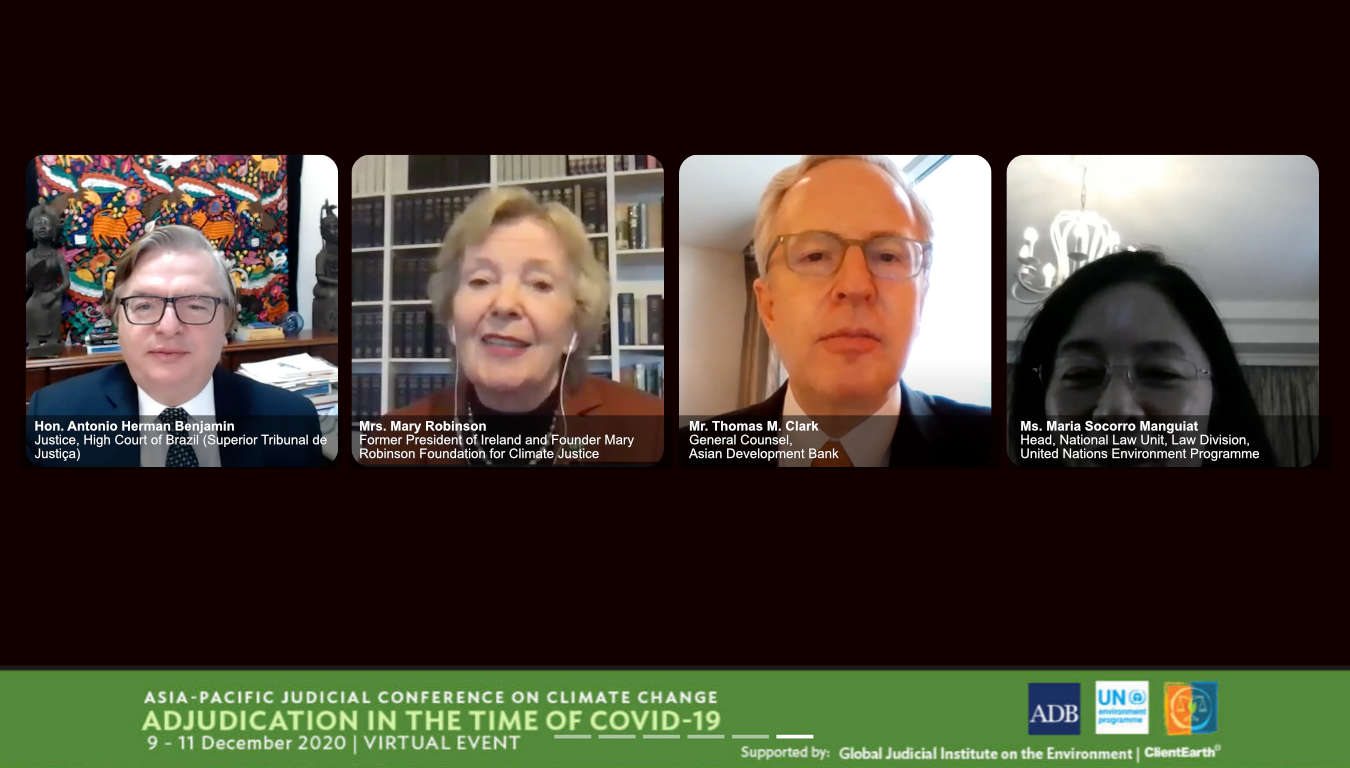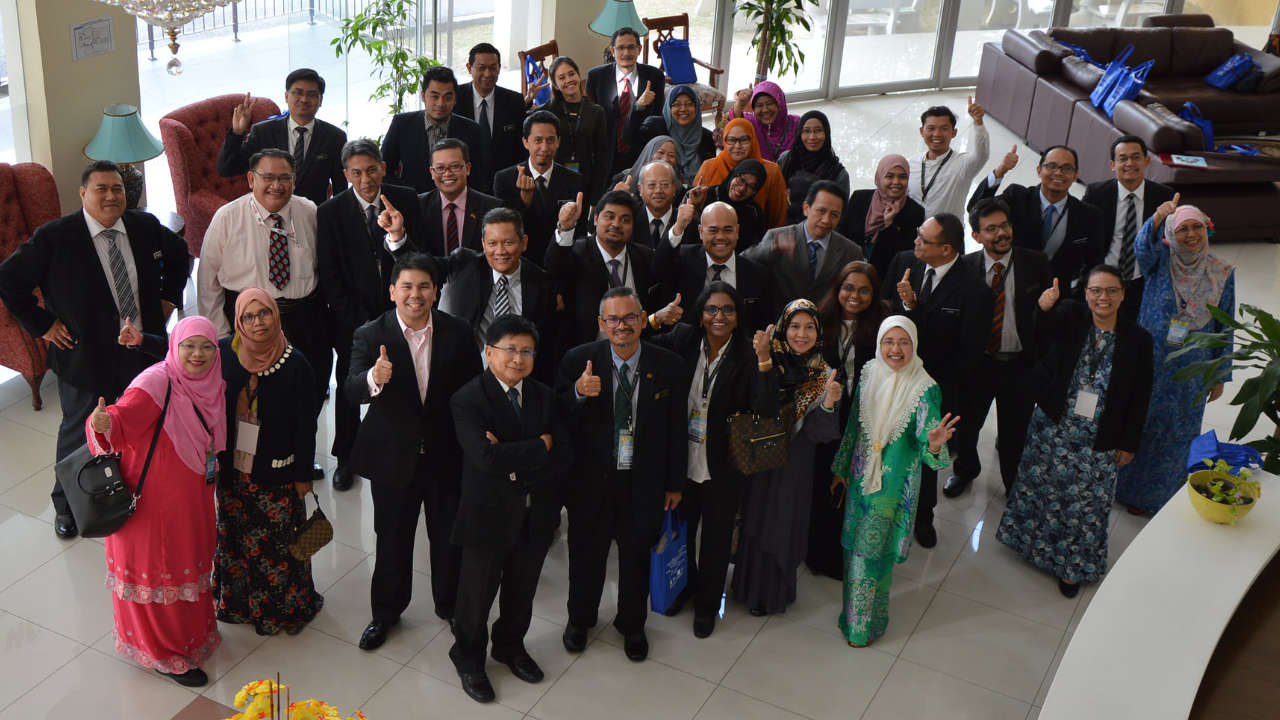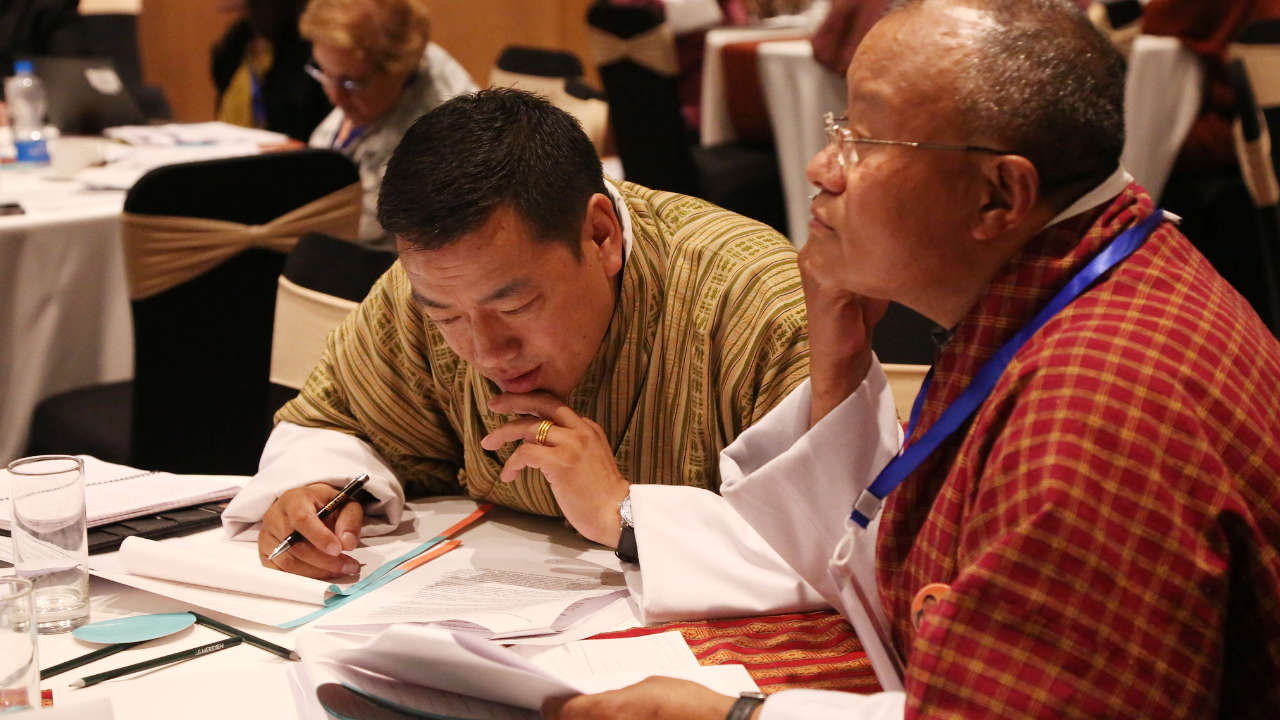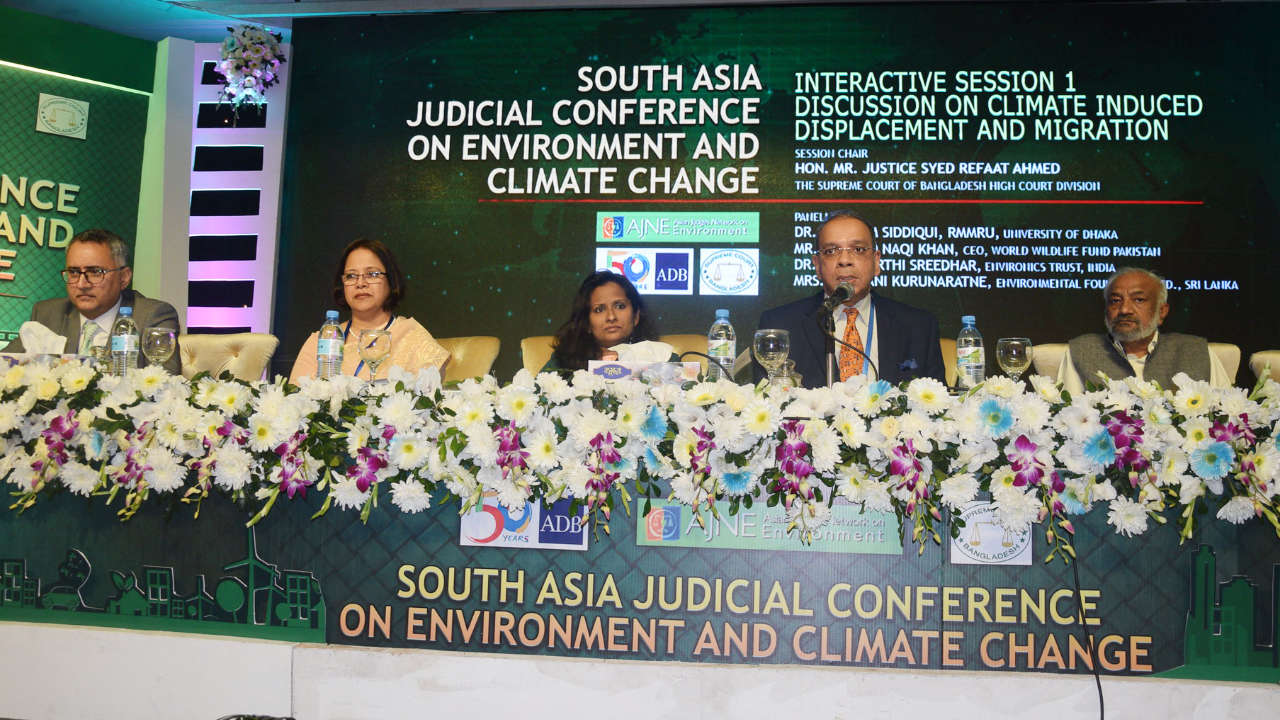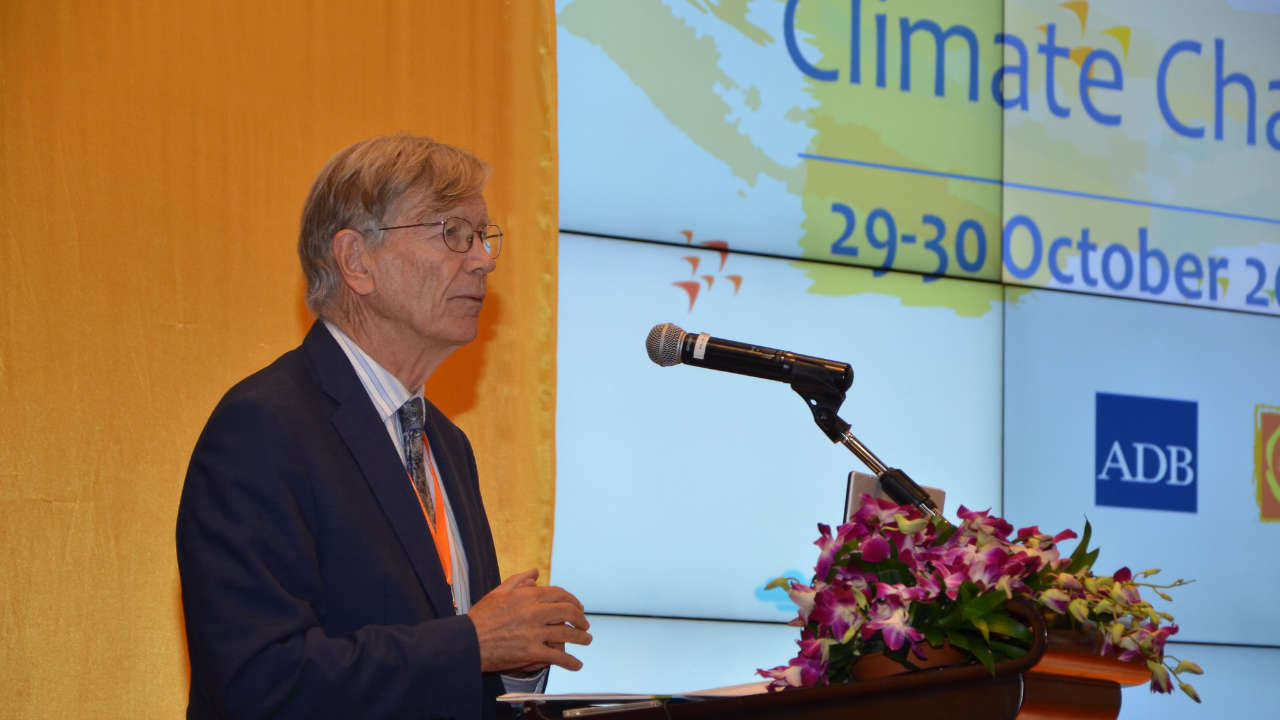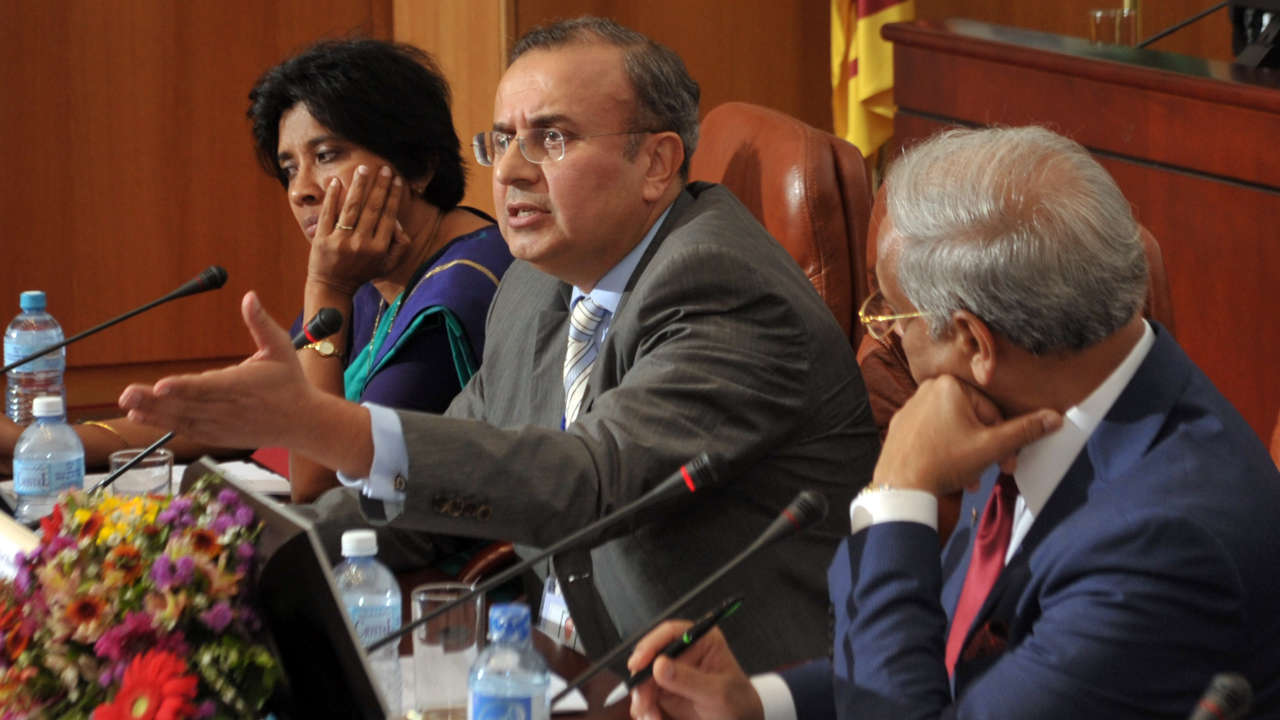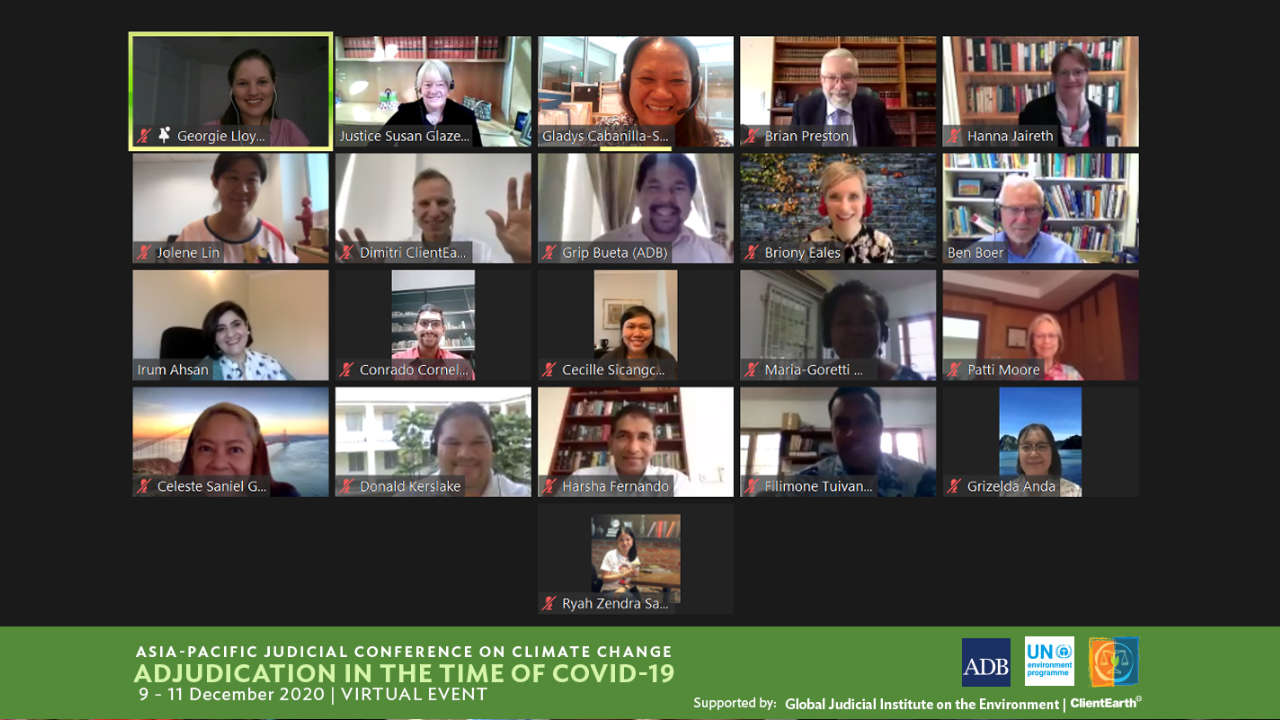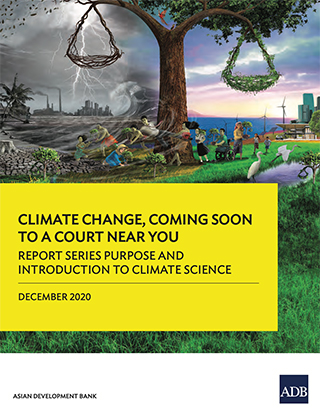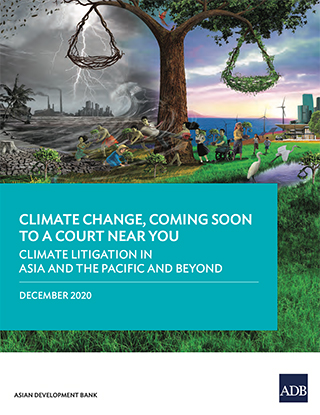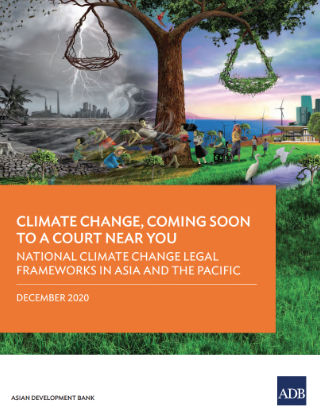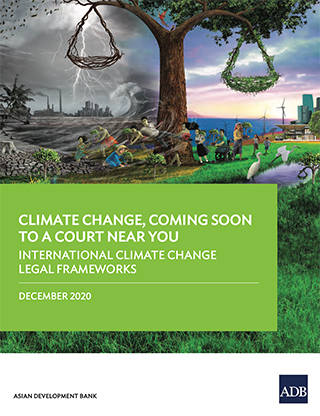Engagement with Judiciaries
Judiciaries can positively affect sustainable development outcomes by interpreting and enforcing environment and climate change laws with due regard to sustainable development principles. ADB's flagship initiative under the Law and Policy Reform (LPR) Program thus seeks to strengthen the capacity of judges in Asia and the Pacific to adjudicate environmental and climate change cases. Over 1,000 judges and legal professionals have participated in the capacity building activities of ADB's judicial technical assistance program since its inception in 2010.
ADB has also helped country judiciaries institutionalize reforms. For instance, ADB:
- supported Bhutan, Malaysia, Pakistan and the Philippines in establishing their “green benches” or “green courts”;
- assisted with establishing judicial certification programs on environment in Indonesia and Sri Lanka; and
- provided expert assistance in drafting environmental court procedures in Bhutan and the Philippines.
To enhance knowledge sharing, ADB supported the creation of first-of-its-kind Asian Judges Network on the Environment (AJNE), an information and experience sharing arrangement that aims to foster closer ties among member judiciaries over shared issues and challenges. AJNE links judges from over 30 countries, and is supported by hundreds of "champion green judges" across Asia and around the world. It has been described by the United Nations Special Rapporteur on Human Rights and the Environment and the United Nations Environment Programme as a "good practice"—a practical and innovative initiative that "will serve to inform and educate actors working in the field, and hopefully enable them to replicate the positive results achieved, as well as create new good practices."
AJNE judges discuss the emerging role of judges as emergency and disaster managers: (1) Testing the Limits of State Power in Climate and COVID Litigation: A Global Comparative Analysis - Hon. Antonio Herman Benjamin Justice, High Court of Brazil (Superior Tribunal de Justiça); (2) The Role of Judges in Climate Governance and Discourse - Hon. Susan Glazebrook, Justice, Supreme Court of New Zealand; President, International Association of Women Judges; and (3) Judicial Challenges for Litigation in the time of COVID - Hon. Syed Mansoor Ali Shah, Justice, Supreme Court of Pakistan. Prof. Jolene Lin, Director of the Asia-Pacific Centre for Environmental Law, also speaks on strategic climate litigation in the wake of COVID-19.
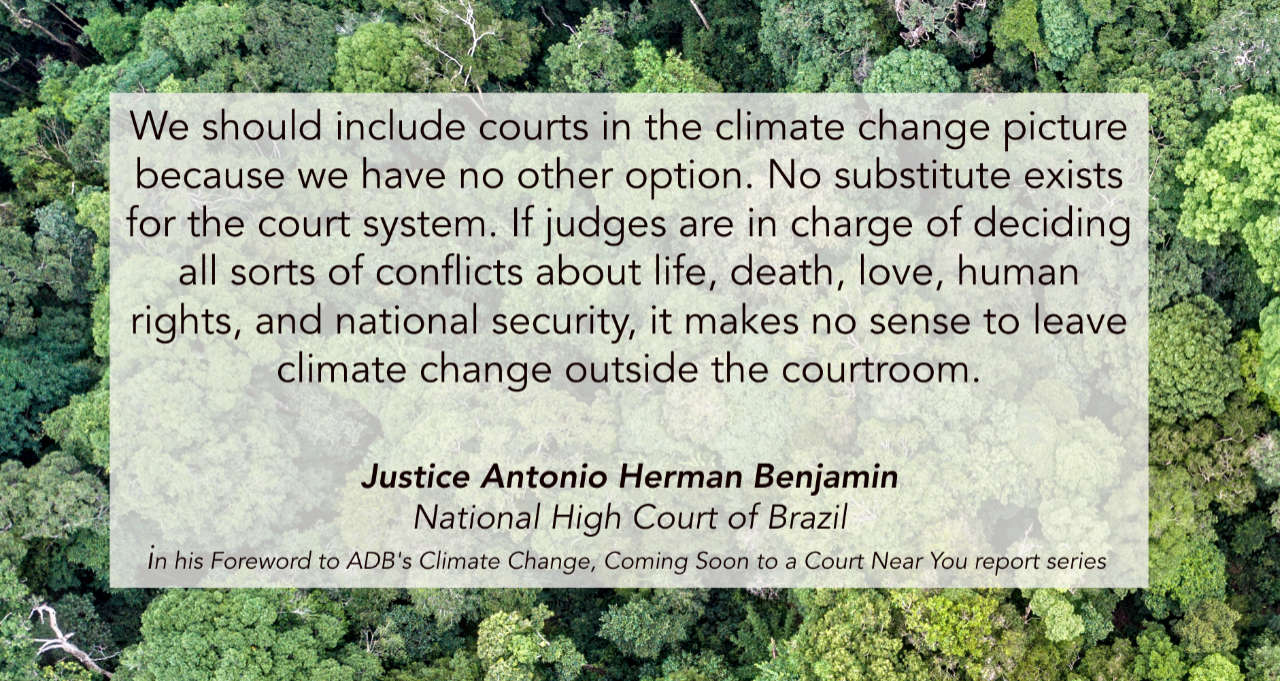
Landmark decisions from AJNE judiciaries inject Asia-Pacific voices into the global discourse on environmental and climate governance. Seminal regional jurisprudence is emerging, and the region’s contribution to global case law has also been internationally recognized. For example, in 2015, the Indonesian Supreme Court ordered a private company to pay damages for carbon emissions, environmental damage and biodiversity restoration after it illegally burned peatlands (Pt Kalista Alam v. Ministry of Environment). In 2018, the Nepal Supreme Court ordered the government to pass and implement a climate change law and implement the existing climate policy (Shrestha vs Nepal). In 2021, the Bangladesh Supreme Court's High Court Division ordered the government to formulate a renewable energy law and establish a renewables ministry and a renewable energy commission to expedite clean power generation and protect biodiversity (BELA Vs Bangladesh). Also in 2021, the Pakistan Supreme Court ruled against the cement company when it challenged an amended environmental regulation prohibiting new or expanded cement plants in environmentally fragile areas home to underground water aquifers. The Supreme Court ruled that protecting water security was appropriate, taking into account climate change considerations (DG Khan Cement v. Pakistan).
In the knowledge sharing space, ADB in December 2020 published Climate Change, Coming Soon to a Court Near You, a four-part report series on climate change law and policy.
- Report 1 explains how judges from Asia and the Pacific contribute to climate governance, along with ADB's rationale for producing this report series. It guides readers through some of the basics about climate change: What is causing it? How do we know? How bad might it get? What do we do about it?
- Report 2 is a comprehensive review of the growing number and variety of climate lawsuits in Asia and the Pacific. It underscores the unique flavor and voice of regional jurisprudence and compares it with global approaches. No one can solve climate change alone and neither can any particular judiciary. Judges can, however, learn from each other, taking judicial excellence and applying it to the case before them.
- Report 3 provides holistic syntheses of the climate legal and policy frameworks of 32 countries in Asia and the Pacific and discusses key legislative trends and climate-relevant constitutional rights.
- Report 4 explores the nature of the Paris Agreement, its history, and the framework of international instruments and international legal principles that support global and domestic climate action.
ADB has received multiple requests to translate the report series into various Asian languages. The reports are currently being translated into Bengali, Mandarin, and Thai.
Engagement with Academics
In 2015, ADB established a regional network of university teachers, trainers, and practitioners dedicated to advancing the teaching and practice of environmental, climate change and sustainability law across Asia.
Environmental law teachers and institutions serve as crucial resources and trainers to ministries of environment, environmental protection agencies, judiciary, businesses, and nongovernment and civil society organizations. These educators and institutions are responsible for creating the next pipeline of environment and/or climate change law practitioners and civil servants, policy makers and judges who will influence sustainability outcomes in the region.
In-country Train-the-Trainers (TTT) programs demonstrate innovative teaching methodologies that go beyond traditional lecturing, and provide participants with new skills and tools for more effective teaching.

Representing institutions in 14 countries (Bangladesh, Cambodia, People’s Republic of China, India, Indonesia, Lao PDR, Malaysia, Myanmar, Nepal, Pakistan, Philippines, Sri Lanka, Thailand, and Viet Nam), we aim to build local and regional environmental and climate change law expertise and increase the number of qualified legal specialists working within government, the judiciary, civil service organizations and the private sector.
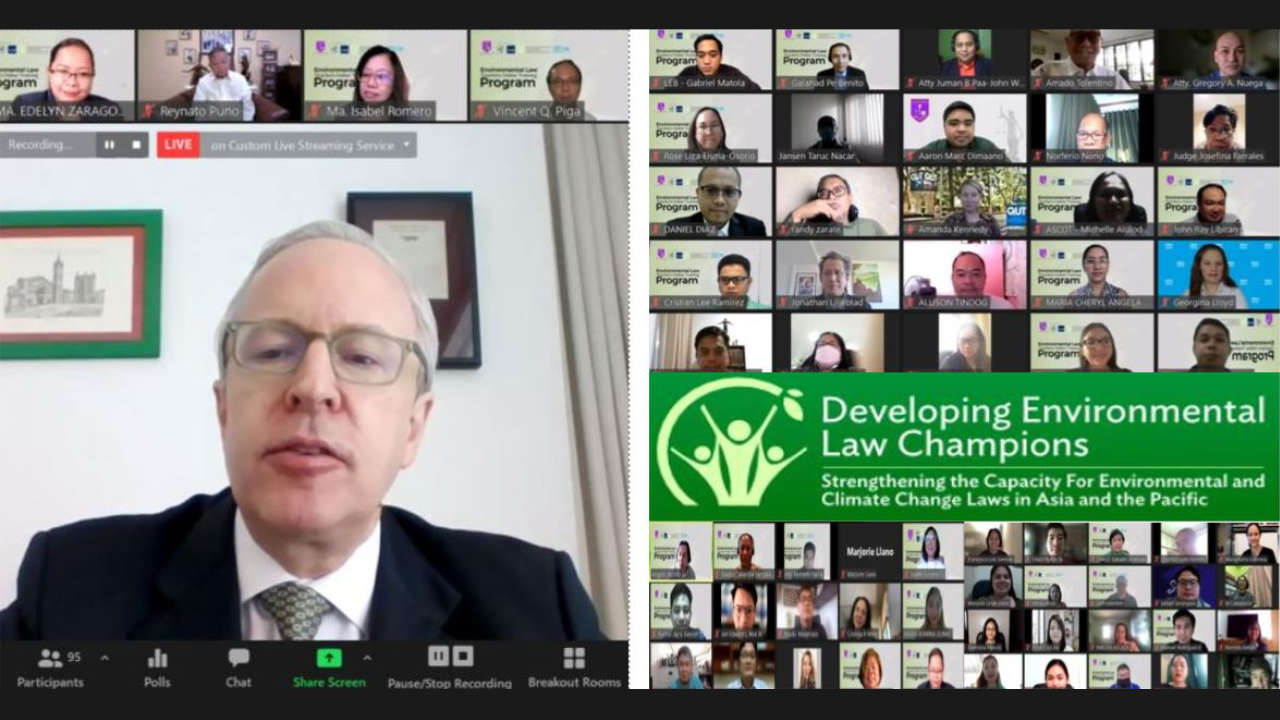
ADB's General Counsel Thomas Clark opened the 22 September launch of the Philippines Environmental Law Teachers Training Program which supports the Legal Education Board’s recent reform initiative providing for mandatory teaching of environmental law.
ADB has developed various knowledge resources for Asia's environmental law professors, such as e-learning courses on (i) core principles of environmental law (ii) teaching and research of environmental law in the Asia Pacific region; (iii) human rights and the environment; (iv) biodiversity law in Southeast Asia; (v) a comparative analysis of environmental impact assessment in Southeast Asia; and (vi) compliance and enforcement of environmental impact assessments. Other materials for tailormade in-country trainings for environmental law teachers may be found on the Environmental Law Champions website.
At present, ADB is assisting the Legal Education Board of the Philippines develop a model environmental law syllabus and other learning modules for Filipino evironmental law professors and lecturers. A similar model curriculum for Greater Mekong Subregion (GMS) countries—Cambodia, Lao People's Democratic Republic, Myanmar, the People's Republic of China, Thailand, and Viet Nam—is also in progress.
Framework Climate Change and Disaster Management Laws
ADB assists developing member countries in strengthening their legal and regulatory capacities to meet their mitigation commitments and adaptation needs under the Paris Agreement, promote flow towards low carbon and climate resilient development, and facilitate climate finance access to address climate change.
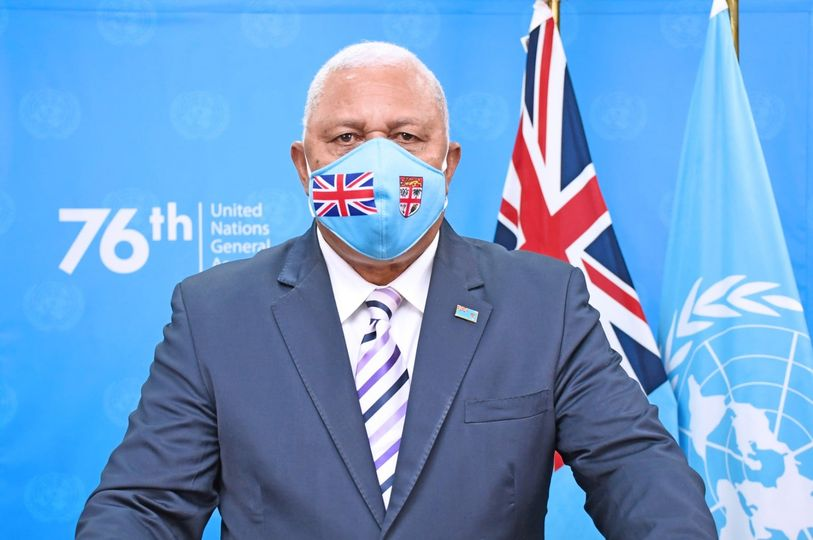
In his address during the 76th session of the United Nations General Assembly (14–30 September 2021), Prime Minister Frank Bainimarama said, "While I wish to be with you in New York, I am beholden to Fiji’s shores for one of the most consequential parliamentary weeks in our history. This week, we passed a Climate Change Act that legally binds Fiji to its commitment of net-zero carbon emissions by 2050. The Act goes further, providing a legal framework for a carbon-neutral and climate-resilient Fiji by committing us to the 100% sustainable management of Fiji’s ocean and climate mitigation and adaptation through nature-based solutions."
Source: Government of Fiji. 2021. Fiji Legislates 2050 Net-Zero Commitment, Challenges Industrialised Nations to Follow Suit. News Release. 26 September.
Photo source: Government of Fiji (Official Twitter Account). Tweet on 26 September 2021, 8:43 AM.
In September 2021, the Parliament of Fiji passed the groundbreaking Climate Change Act, which provides a comprehensive framework using a "whole-of-economy" approach that will guide Fiji's response to climate change and help it progress toward its Nationally Determined Contributions. Drafted with ADB's assistance, the Act creates requirements and governance arrangements, as well as helps to implement the Paris Agreement. Fiji is the first Small Island Developing State to pass climate legislation inclusive of a net-zero emissions goal and the first globally to set out a legally recognized state-supported process for relocation of at-risk communities. The Government of Fiji describes the Act as "the world’s most comprehensive pieces of climate legislation, covering issues such as long-term net-zero commitments, carbon budgets, carbon market establishment, climate-induced human mobility, nature-based solutions, the legal recognition of maritime boundaries relative to sea level rise, climate finance and intergovernmental resilience building."
ADB also assisted the Lao People's Democratic Republic (Lao PDR) in drafting the Disaster Management Law, 2019, which recognizes disaster prevention as the key activity, and undertaking control and recovery as significant activities. The Law sets out the core components of disaster prevention—such as data collection, risk mapping, establishment of a risk information system accessible by the general public, risk assessment, risk reduction, and early warning systems—as well as disaster control and post-disaster recovery. It also outlines the rights and obligations of disaster victims, and establishes the Disaster Management Fund to finance emergency aid, repair of necessary infrastructure, and search and rescue. Related to this, ADB also assisted the Lao PDR in drafting the Climate Change Decree. The Decree requires mainstreaming climate change issues into national socio-economic development plans, as well as sectorial and local strategies and plans. It covers adaptation and mitigation mechanisms, e.g., mapping vulnerabilities and increasing carbon sinks, and likewise mandates the development of a data and information system on climate change.

Legal Readiness to Attract Climate Finance: Towards a Low-Carbon Asia and the Pacific by ADB Law and Policy Reform champions Takako Morita and Christina Pak identify legal barriers and opportunities for legal modernization to optimize options for climate finance in Fiji and the Lao People's Democratic Republic.
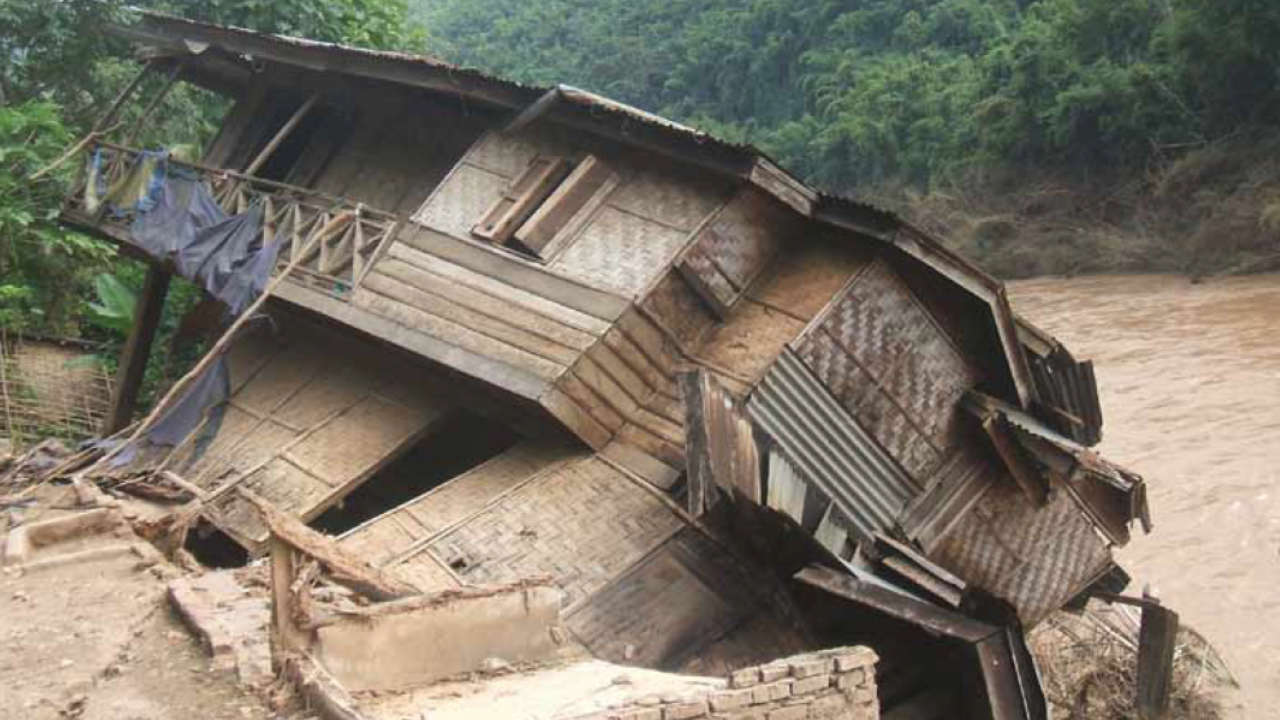
Lao PDR is prone to a number of different disaster and disease risks such as floods in the Mekong corridor, major droughts, earthquakes, flash floods and storms related to a heavy typhoon season, as well as human influenza pandemic. Legal Preparedness for Responding to Disasters and Communicable Disease Emergencies: Study Report - Lao PDR
